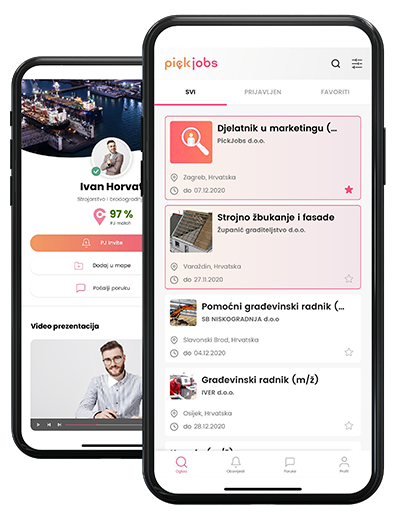A recent study by the DeVry University from Illinois in the USA showed that 65 percent of people who successfully completed their job search and quickly got hired send an e-mail thank you to the employer after the interview, reports Women in Adria.
With this research, they wanted to find out how people who get hired quickly approach their job search. The research was conducted on 589 people who managed to get a job within six months of starting their job search.
Almost 98 percent of people who participated in this research sent a message of gratitude after the interview.
65 percent sent a thank you email
17 percent sent a thank-you letter, typed or handwritten
16 percent thanked the potential employer with a phone call
But ultimately, as this research has shown, the way they expressed their gratitude is not so important as, in fact, it is important that they thanked at all.
Considering that very few people thank you in some form of writing after an interview, sending a thank-you email ranks you among those with more polite manners.
So, after the interview, send an email thanking you for the opportunity to introduce yourself to the employer. It would be preferable to do this on the same day that you had the interview, so that the employers will visit you for your interview after they have finished with the other candidates. You can also send a thank you letter, but in today's world of technology and speed of communication, an e-mail is sufficient.
Here's what you can do besides sending a thank you email. Just a few minutes after the conversation, in order to further strengthen your good position:
1) Stay organized
Save the ad you applied for, as well as the application and resume you sent to that employer. Write on these documents the names of the people who were present at the job interview, especially the name of the employer. If they said that they will call you back in a week or two, write down that information and the date when you expect a call. Namely, if no one from the company has contacted you by then, you can call them and politely mention that you are calling because the deadline by which you should have received feedback has passed, so you were free to contact them yourself and check if there is any news.
2) Write down your impressions
Now that the conversation is behind you, you'll likely analyze it later. Feeling like you've been fidgeting too much? Did the employer ask you a question you haven't heard before at a job interview? Did you miss to mention any information? Write down your impressions. Even if you don't get the job, the notes you've made will be a useful guide the first time you get the next opportunity and will allow you to prepare even better for the next interview.
3) Share knowledge and expertise
Even during a job interview, it may happen that you talk to the employer about a current problem for which you have a solution or an idea on how to approach solving the problem. You can tell the employer that you will send them a link to an article you recently read on the topic or copies of some interesting research. Keep in mind that you do not overwhelm the employer with useless information and that you do not use this subsequent method of communication for the purpose of your own promotion, rather to really help. The employer will know how to appreciate it and see it as your additional plus - reports Career Builder.
4) Try to connect with employees
The more people you know within the company, the more quality information you have. This is not an invitation to connect with those people you don't know and obsess over them on social media. By following the news, the company's official website, etc., you can learn a lot about its activities, culture, values, and even the employees themselves and the way they work. If there were more people at the job interview with the employer (Human Resources Specialist, Head of Department, etc.), you can search for their profiles on social networks (LinkedIn, Twitter), follow them and read their posts. In this way, you will also see the 'other face' of the company: what kind of people work there, what they are interested in. You can also comment on some topics.
You don't have to apply all of these methods after a job interview. Choose one or more of them in which you will feel most comfortable. The goal is to reinforce your good impression, not to annoy the employer or future colleagues.

 Croatia
Croatia Bosnia and Herzegovina
Bosnia and Herzegovina Serbia
Serbia Crna Gora
Crna Gora North Macedonia
North Macedonia Ukraine
Ukraine Albania
Albania Kosovo
Kosovo Austria
Austria Deutschland
Deutschland Switzerland
Switzerland









